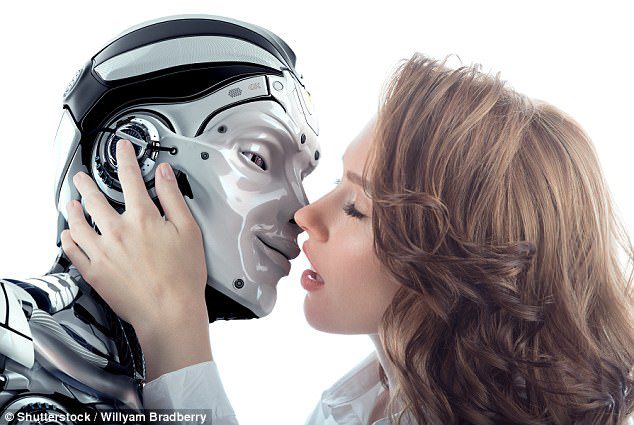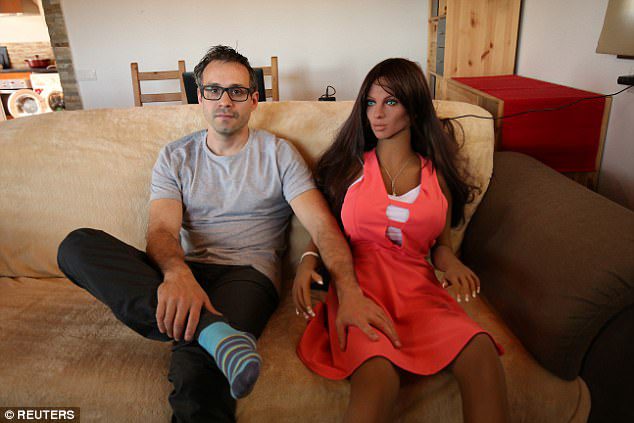According to a new report, robots have become an ever-increasing part of our daily lives, and humans could soon find love with the machines.
The report suggests that over 25% of 18-34 year-olds eventually will feel it is normal to form friendships and even romantic relationships with robots instead of humans.
The report indicates that males are three times more likely to form a relationship with a robot than women.

A new report suggests that over a quarter of 18-34 year-olds will feel it’s normal to form friendships and even romantic relationships with robots in the future (stock image)
Paris-based Havas created the report and examined the future of artificial intelligence, along with people’s attitudes to the future of technology.
The findings were based on a survey of 12,000 people of all ages worldwide.
In the UK, men were three times as likely to agree they could have a relationship with a robot in the future, compared to women.
Romantic relationships with bots are more common than you might think. The report suggests they could be taken up by as much as 27% of 18-34-year-olds.
The report had several other predictions for the future.
Data suggests that men in the UK, are more likely than women to prefer their social media lives to their real one. Nearly 20% prefer the virtual world of social media.
There was a widespread consensus (70% of respondents) that smartphones are weakening human bonds. However, younger people are feeling the worst effects of this.
According to the study, younger people are more likely to feel depressed about their own lives after looking at other people’s social media channels. With 42% of 18-34-year-olds reporting feeling depressed or unhappy after seeing other people’s lives online.

The surging availability of robotic sex dolls means it is easier than ever for people to rely on technology for their sexual needs. Experts have warned we will soon see a rise in the number of ‘digisexuals’. Pictured right is Samantha, a realistic sex bot currently on sale in London
Nigel Hughes, board director at Havas PR, said: ‘Filters and AR can, on the face of it, help improve people’s perceptions of the world around them, yet our study reveals that nearly half (42 percent) of 18-34 years olds felt unhappy about their own lives after comparing themselves to others on social media.
‘That’s compared to only 21 percent of 35-54-year-olds saying the same, suggesting we are not equipping young people with the emotional framework needed to process this virtual reality.’
An area of tension is the fact that 40% of people aged between 18 and 34 are concerned that robots will take their jobs and people aged 55 and over, most likely think AI will liberate humans from repetitive tasks, giving us more time to enjoy life.
If you know someone who might like this, please click “Share!”
